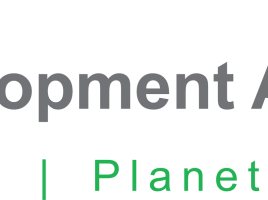Delivering basic needs goods and services: an opportunity to horse-leap over the development deficit
Can the current deficit in basic needs products and services for the large number of families in rural and urban settlements be seen as an opportunity? Can meeting this gap be done in a manner that provides futuristic solutions for a sustainable tomorrow? Acceptance of this hypothesis would imply that we need technology solutions and delivery methods quite different from what we are used to today. Interesting combinations of the public-private-community partnership models are emerging for servicing the housing, drinking water, sanitation and energy needs of rural and urban communities using clean and green technologies.
Accessibility and availability deficits with iniquitous distribution have led to the poor paying very high costs for meeting their basic needs. And, despite paying higher costs, they receive inadequate quantity and questionable quality of housing, safe drinking water and domestic energy. Service delivery to geographically dispersed communities in rural India and to poor urban unregularised settlements poses several challenges. These include high costs of infrastructure development and management, maintaining quality of service in villages and limitations of local municipal authorities to provide permanent infrastructure to unregularised urban settlements.
Decentralised delivery of basic needs goods and services offers many opportunities while leaping over current challenges in interesting ways. Decentralisation requires local capacities to be created to service local markets and communities. This creates more jobs. Along with localised capacities, decentralisation enhances local system control and limits unmanageable and catastrophic large scale failures as we have seen in the national grid collapse and water borne epidemics. Localised system disruptions can be dealt with, without major losses.
Decentralisation also reduces the risk of locking in capital in large infrastructure that may be based on obsolete and potentially unsustainable technology choices. This enables systems to quickly modernise as opportunities become available.
Hidden in the decentralisation process is another amazing opportunity to select and promote cleaner and greener technologies relevant to individual contexts. For example, the affordable home construction service can be packaged with green construction technologies. The technologies help in bringing the price point down making the end product cheaper; and, clubbed with other services such as financing, they make homes more accessible to communities. In addition, by virtue of being decentralised, they promote local production of green materials and local skills, creating green jobs and improving local economies in the process.
The Development Alternatives Group’s initiatives in incubating such ecosystems in the area of rural housing, water supply and energy services are providing useful lessons with respect to capacities required, investments needed, support systems for product and service delivery entrepreneurs, enabling policies and regulations and most importantly, strategies for market development.
This article originally appeared in the October (2013) edition of Development Alternative Newsletter.





Leave a Reply